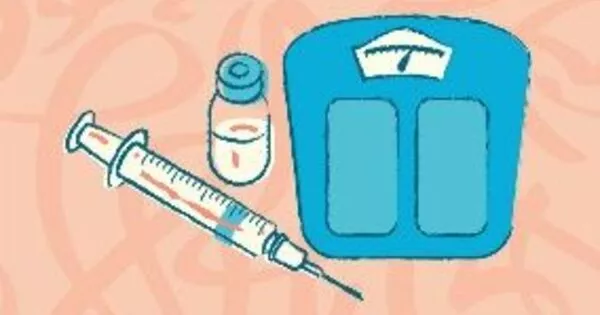People who are overweight or obese are frequently stigmatized because of their weight, but there has been little research into how people cope with these experiences. Long-term use of prescription weight-loss drugs leads to significant weight loss when compared to an inactive treatment that does not use a medicine, known as a placebo. The combination of weight-loss medication and lifestyle changes results in greater weight loss than lifestyle changes alone.
According to a new study published today in the New England Journal of Medicine and presented at Obesity Week 2022, a drug called semaglutide, which is approved for adults with obesity or overweight, can also help adolescents lose weight and have healthier hearts.
In an international phase 3a clinical trial, adolescents with obesity who received once-weekly semaglutide versus placebo had a 16.1% decrease in BMI, while those who took a placebo had a 0.6% increase in BMI.
“Obesity rates are increasing, not just in the United States, but all over the world,” said senior author Silva Arslanian, M.D., professor of pediatrics and clinical and translational science at the University of Pittsburgh School of Medicine and holder of the Richard L. Day Endowed Chair in Pediatrics. “We usually make lifestyle recommendations: eat more vegetables, avoid fried foods, and avoid soda. But, because we live in an obesogenic environment, making those changes can be difficult. There is a real need for safe and effective medications to treat obesity.”
Obesity rates are increasing, not just in the United States, but all over the world. We usually make lifestyle recommendations: eat more vegetables, avoid fried foods, and avoid soda. But, because we live in an obesogenic environment, making those changes can be difficult.
Silva Arslanian
Semaglutide is an obesity drug that mimics a hormone called glucagon-like peptide-1 to target areas of the brain that decrease appetite and improve control of eating. In 2021, this drug was approved for chronic weight management in adults with obesity or overweight.
To assess whether semaglutide is also effective in youths, researchers enrolled 201 adolescents aged between 12 and 18 years with obesity or overweight across multiple centers. Participants received either once-weekly subcutaneous injections of semaglutide 2.4 mg or placebo, and all received concurrent lifestyle intervention – counseling on healthy nutrition and physical activity – throughout the trial.
After 68 weeks, 72.5% of semaglutide participants had achieved at least 5% weight loss compared to just 17% of those on placebo.

“The results are amazing,” said Arslanian, who is also director of the Pediatric Clinical and Translational Research Center and scientific director of the Center for Pediatric Research in Obesity and Metabolism at Pitt and UPMC Children’s Hospital of Pittsburgh. “For a person who is 5 foot, 5 inches tall and weighs 240 pounds, the average reduction in BMI equates to shedding about 40 pounds.”
Obesity affects nearly one in every five children and adolescents globally. This chronic disease is associated with a lower life expectancy and an increased risk of developing serious health issues such as type 2 diabetes, heart disease, nonalcoholic fatty liver disease, sleep apnea, and certain cancers. Obese teenagers are also more likely to suffer from depression, anxiety, low self-esteem, and other psychological issues.
When compared to the placebo group, semaglutide participants improved in cardiovascular risk factors such as waist circumference, a blood sugar metric known as HbA1c, total, low-density, and very low-density lipoprotein cholesterol, triglycerides, and liver enzymes. However, there was no statistically significant difference between the two groups in blood pressure or high-density lipoprotein cholesterol.
When compared to their placebo counterparts, participants who took semaglutide had a better weight-related quality of life measures, owing primarily to an increase in physical comfort scores. According to the researchers, this is the first obesity drug to be linked to such quality-of-life improvements in adolescents.
















